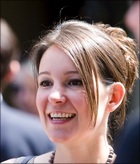My Academic Pathway - the "Hows, Highs and Lows"
My aim is to become a clinical triallist with formal methodological training. There is an unmet need for this. A significant limitation of anaesthesia and critical care research is the heterogeneous nature of our population. Application of a fixed intervention can mask potentially divergent effects in subgroups, resulting in an overall "negative trial". Furthermore, trials are expensive and labour intensive. The use of adaptive trial designs, where patient outcomes feed back into the allocation algorithm is a personalised and efficient trial, where future patients are allocated based on risk, into the most beneficial arm for them. Integration of the significant amounts of routinely collected data into trial design could significantly reduce the burden of data collection for research staff, and reduce trial costs.
The "Hows"
I graduated in 2003 and three specialties, four deaneries, and two children later, I am a Registrar in Anaesthesia and Intensive Care Medicine, and I have 12 months left of my clinical training. I didn't do a BSc at University, promising myself at the time that I could do something clinically relevant later on. I finally succumbed to this in 2013-14 when I took a year out of clinical medicine to do a Masters in Public Health. This was unpaid, but gave me not only an excellent grounding in methodology, but also the confidence to successfully apply for a PhD. I think this was a really useful way into research, as I would never have previously considered doing a PhD. During my PhD I was able to improve my epidemiology training, and performed a systematic review, observational cohort study and data linkage study. I had the opportunity to present at national meetings, to supervise trainee and medical student projects, and also take time to do other projects such as the Anaesthesia journal trainee fellowship, and trainee representation for the NIAA. I finished my PhD in June 2017, and I now have a Clinical Lecturer post - I work 80% LTFT, and of that, 20% is for research.
The "Highs"
One of the best parts of taking four years out of training to do research is that it gave me the time to focus properly. For each project, I was able to research the background, design the project, perform it, and follow it all through, all without having to change subspecialties and hospitals. The training that I received was structured and rigorous, and I was well supported by my supervisors and mentors. I had autonomy to work how I wanted, which with two children and a husband away with the army, meant that I could pick up the children from school, and work in the evenings from home - this flexibility was exceptionally useful. I was able to work with inspiring people, and become an expert in albeit a tiny field. I also had the opportunity to change clinical practice.
The "Lows"
The flip side of taking four years out of training, is that it is taking a rather long time to finish my training. I will CCT 16 years after leaving medical school, when my peers have been long established in Consultant posts. It is difficult to maintain clinical skills, particularly in craft specialties such as ours, and I found that in order to maintain these skills - and just as importantly, my confidence in my skills - I needed to work around one in six weekends. This was a considerable burden on top of a full time PhD, but having come out of the other side, I am very grateful for the confidence and competence that I was able to maintain. Whilst flexible, the PhD was certainly not part-time, and I worked considerably more hours than I did when I was in clinical training. Finally, there is little job certainty with academic post-CCT jobs - they are rare in anaesthesia, and only last for 3-4 years.
I think taking time out as a trainee to do research is a fantastic opportunity that is not really open to clinicians post CCT. There are alternatives to a three year PhD, such as an MSc, MPH or MD. It is essential to choose the project and the supervisors wisely. Finally, I would recommend the opportunity to all of us to be part of cutting edge research.








